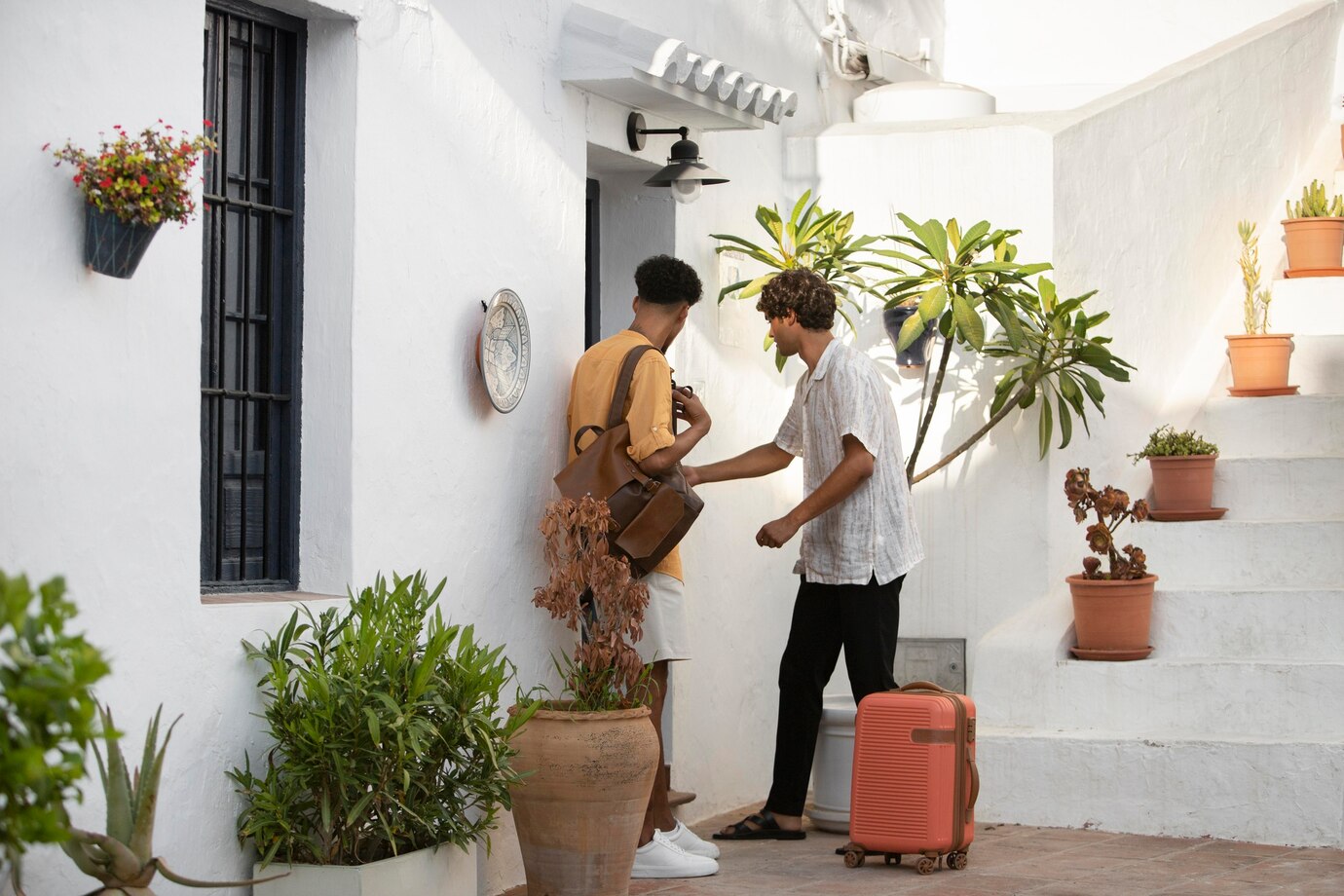
Key takeaways
- Rental income from vacation properties can be a great way to offset mortgage costs
- Winnipeg’s real estate market offers opportunities for vacation property investments
- Understanding tax implications is crucial for maximizing rental income
- Proper property management is essential for successful vacation rentals
- Seasonal demand in Manitoba can affect rental income potential
- Local regulations in Winnipeg and surrounding areas must be considered
Generating rental income and vacation properties can be a savvy strategy to boost your earnings and help cover mortgage expenses. For Winnipeg homeowners, this potential is especially attractive due to the city’s expanding tourism industry and its close proximity to sought-after vacation destinations. Let’s explore how you can maximize rental income from vacation properties in and around Winnipeg.
Understanding vacation rental properties in Winnipeg
Winnipeg might not be the first place that comes to mind when thinking about vacation rentals, but the city and its surrounding areas have a lot to offer. From urban experiences to lakeside getaways, there’s potential for various types of vacation rentals.
City-based rentals
Downtown Winnipeg has seen a surge in tourism over the past few years. Visitors come for events at the Bell MTS Place, to explore The Forks, or to attend conferences at the RBC Convention Centre. This creates a market for short-term rentals in the city center.
Lake country retreats
Manitoba is known for its beautiful lakes, and many Winnipeggers own cottages or cabins in areas like Lake Winnipeg, Whiteshell Provincial Park, or Riding Mountain National Park. These properties can be excellent candidates for vacation rentals during periods when owners aren’t using them.
The benefits of rental income from vacation properties

Earning rental income from your vacation property can help offset the costs of ownership and potentially turn your property into a profitable investment. Here are some key benefits:
Mortgage assistance
Rental income can go directly towards your mortgage payments, helping you build equity faster. This is especially helpful in Winnipeg’s current real estate market, where property values have been steadily increasing.
Tax advantages
While rental income is taxable, you can deduct many expenses related to the property. This includes mortgage interest, property taxes, insurance, and maintenance costs.
Property upkeep
Regular rentals can help keep your property in good condition by ensuring it’s used and maintained throughout the year, rather than sitting empty for long periods.
Managing your vacation rental property
Successful management of your vacation rental is key to maximizing your rental income. Here are some tips:
Pricing strategy
Research similar properties in your area to set competitive rates. Remember that Winnipeg and Manitoba have distinct high and low seasons, so adjust your pricing accordingly.
Marketing your property
Use online platforms like Airbnb, VRBO, or local Manitoba vacation rental sites to list your property. High-quality photos and detailed descriptions are essential.
Guest experience
Providing a great guest experience can lead to positive reviews and repeat bookings. Consider offering amenities that showcase local Winnipeg or Manitoba experiences, like guides to nearby attractions or locally-made products.
Tax considerations for vacation rental income
Understanding the tax implications of your rental income is crucial. Here’s what you need to know:
Reporting rental income
All rental income must be reported on your tax return. Keep detailed records of all income and expenses related to your property.
GST/HST considerations
If your annual rental income exceeds $30,000, you may need to register for and collect GST/HST. This is an important consideration for Winnipeg property owners.
Capital gains tax
If you sell your vacation property in the future, you may be subject to capital gains tax on any increase in value. However, if the property qualifies as your principal residence for any period, you may be able to reduce this tax.
Seasonal considerations in Winnipeg and Manitoba
Winnipeg and Manitoba experience distinct seasons, which can significantly impact vacation rental demand:
Summer peak
Summer is prime time for vacation rentals in Manitoba, especially for lakeside properties. From June to August, you can expect high demand and the potential for premium rates.
Winter opportunities
While summer is the peak season, don’t discount winter rentals. Winnipeg’s winter festivals and nearby ski resorts can attract visitors looking for cozy accommodations.
Shoulder seasons
Spring and fall can be challenging for vacation rentals in Manitoba. Consider offering special rates or targeting specific groups like business travelers during these periods.
Local regulations and licensing
Before renting out your vacation property, it’s important to understand local regulations:
Winnipeg short-term rental bylaws
Winnipeg has specific bylaws governing short-term rentals. As of 2021, hosts must obtain a short-term rental license and follow certain operating guidelines.
Rural municipality rules
If your property is outside Winnipeg, check with the local rural municipality for any specific regulations or licensing requirements.
Insurance considerations
Standard homeowners insurance may not cover short-term rentals. Speak with your insurance provider about appropriate coverage for your vacation rental property.
Financing your vacation rental property
If you’re considering purchasing a property for use as a vacation rental, there are some financing considerations to keep in mind:
Mortgage options
Some lenders offer specific mortgage products for vacation properties. These often require a larger down payment than primary residences.
Using equity
If you already own a home in Winnipeg, you might be able to use its equity to finance a vacation property purchase through a home equity line of credit (HELOC) or refinancing.
Revenue projections
When applying for financing, lenders may consider potential rental income. Having a solid business plan with realistic revenue projections can be helpful.
Property management options

Managing a vacation rental can be time-consuming. Here are some options to consider:
Self-management
If you live in Winnipeg and your rental property is nearby, self-management might be feasible. This gives you full control but requires significant time and effort.
Professional property management
For properties further afield or if you prefer a hands-off approach, professional property management services are available in Winnipeg and throughout Manitoba.
Hybrid approach
Some owners choose to handle bookings and guest communication themselves but hire local services for cleaning and maintenance.
Maximizing your rental income
To get the most out of your vacation rental property, consider these strategies:
Amenities that attract guests
Think about what amenities would appeal to visitors to Winnipeg or your specific area in Manitoba. This could be anything from high-speed internet for business travelers to kayaks for lakeside properties.
Length of stay strategies
In Winnipeg, you might focus on shorter stays for urban properties, while lakeside cottages might be better suited for week-long bookings, especially during summer.
Off-season appeal
Think about how to make your property attractive during Manitoba’s off-season. This could involve marketing to different demographics or offering special packages.
Potential challenges of vacation rentals
While vacation rentals can be profitable, they come with challenges:
Inconsistent income
Rental income can be unpredictable, especially given Manitoba’s seasonal nature. Budget for periods of low occupancy.
Maintenance and repairs
Frequent guest turnover can lead to more wear and tear on your property. Factor this into your budget and pricing strategy.
Guest issues
Occasionally, you may encounter problematic guests. Having clear house rules and a system for vetting guests can help mitigate this risk.
The future of vacation rentals in Winnipeg
The vacation rental market in Winnipeg and Manitoba continues to evolve:
Growing tourism sector
Winnipeg’s efforts to attract more tourists could lead to increased demand for vacation rentals in the coming years.
Changing regulations
Keep an eye on potential changes to short-term rental regulations in Winnipeg and throughout Manitoba.
Technology advancements
New property management technologies are making it easier for owners to manage their rentals efficiently.
Environmental considerations
As environmental awareness grows, consider making your vacation rental more eco-friendly:
Energy efficiency
Invest in energy-efficient appliances and systems. This can lower operating costs and appeal to environmentally conscious guests.
Local and sustainable amenities
Stock your rental with locally-made, sustainable products to showcase Manitoba’s commitment to the environment.
Waste reduction strategies
Implement recycling and composting systems in your rental to reduce waste and appeal to eco-minded guests.
Building a vacation rental network
Networking with other vacation rental owners in Winnipeg and Manitoba can be beneficial:
Shared knowledge
Learn from others’ experiences in the local market.
Referral opportunities
During peak times, you might be able to refer overflow bookings to other properties and vice versa.
Collective bargaining
A network of owners might have more leverage when negotiating with service providers or advocating for favorable regulations.
Rental income and your mortgage

Rental income from your vacation property can have implications for your mortgage:
Refinancing opportunities
Consistent rental income might allow you to refinance your mortgage on better terms.
Mortgage paydown strategies
Consider using rental income to make extra mortgage payments, potentially saving thousands in interest over time.
Impact on future borrowing
Rental income can be considered when applying for future loans, potentially improving your borrowing capacity.
Here’s a table showing the average nightly rates for vacation rentals in different areas around Winnipeg:
| Location | Summer Rate | Winter Rate | Spring/Fall Rate |
|---|---|---|---|
| Downtown Winnipeg | $150 | $120 | $135 |
| Winnipeg Beach | $200 | $150 | $175 |
| Riding Mountain | $225 | $175 | $200 |
| Whiteshell | $250 | $200 | $225 |
And here’s another table showing estimated annual expenses for a typical vacation rental property in Manitoba:
| Expense Category | Estimated Annual Cost |
|---|---|
| Property Taxes | $3,000 |
| Insurance | $1,500 |
| Utilities | $2,400 |
| Maintenance | $2,000 |
| Cleaning Services | $3,600 |
| Marketing | $1,000 |
| Property Management (if used) | $5,000 |
Here’s a list of essential amenities for a vacation rental in Winnipeg:
- High-speed Wi-Fi
- Fully equipped kitchen
- Comfortable bedding and linens
- Air conditioning for summer
- Heating for winter
- Parking space
- TV with streaming services
- Outdoor space (balcony, patio, or yard)
- Washer and dryer
- Local guidebooks and recommendations
By considering these factors and implementing smart strategies, you can make the most of rental income from your vacation property in Winnipeg and surrounding areas. Remember to stay informed about local regulations, market trends, and guest preferences to ensure your vacation rental remains a successful investment. For more information, visit our website or contact us!